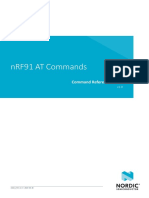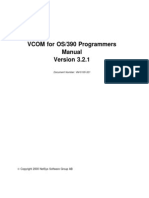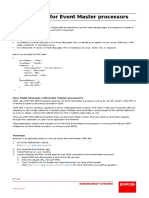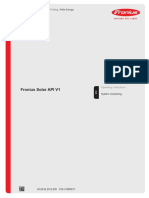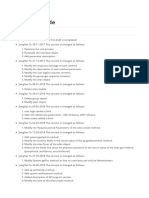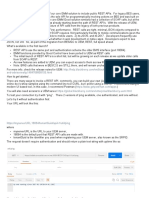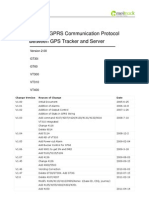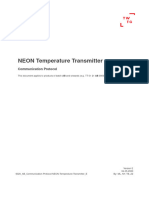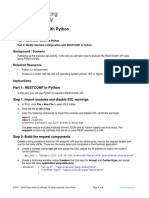0% found this document useful (0 votes)
158 views15 pagesRevCode Android Client Protocol
The document outlines the communication protocol for the RevCode Android Client, detailing the process for establishing a secure SSL connection, the structure of packets sent and received, and the various tasks that can be executed such as retrieving call logs, SMS logs, and device information. It specifies the required variables for handshakes and connections, as well as the encryption and compression methods used. Additionally, it describes the input and output formats for various tasks, including obtaining location data, installed applications, and clipboard contents.
Uploaded by
Anonymous z7O4IiT0ACopyright
© © All Rights Reserved
We take content rights seriously. If you suspect this is your content, claim it here.
Available Formats
Download as DOCX, PDF, TXT or read online on Scribd
0% found this document useful (0 votes)
158 views15 pagesRevCode Android Client Protocol
The document outlines the communication protocol for the RevCode Android Client, detailing the process for establishing a secure SSL connection, the structure of packets sent and received, and the various tasks that can be executed such as retrieving call logs, SMS logs, and device information. It specifies the required variables for handshakes and connections, as well as the encryption and compression methods used. Additionally, it describes the input and output formats for various tasks, including obtaining location data, installed applications, and clipboard contents.
Uploaded by
Anonymous z7O4IiT0ACopyright
© © All Rights Reserved
We take content rights seriously. If you suspect this is your content, claim it here.
Available Formats
Download as DOCX, PDF, TXT or read online on Scribd
/ 15








